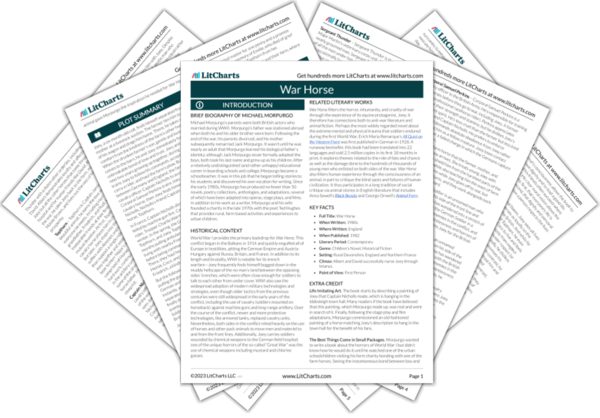The troops continue to find themselves chastened when their expectations of war’s glory and adventure meet its grim reality: pain and suffering, especially along the front lines. The armies of both sides dug into trenches from which they shot guns and artillery at each other across no-man’s-land. Trench warfare left soldiers partially exposed (to each other, to the elements) in miserable, muddy, and disease-laden conditions for months on end; it was, in many ways, pointless, as the mere establishment of the trenches meant that neither side could make much progress on moving their own front line.
